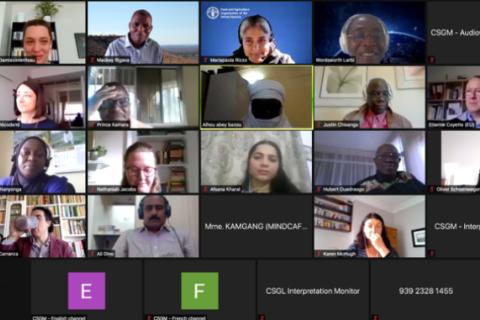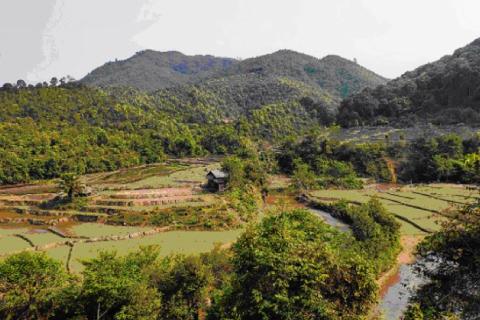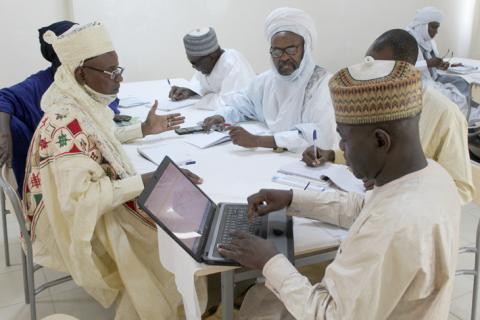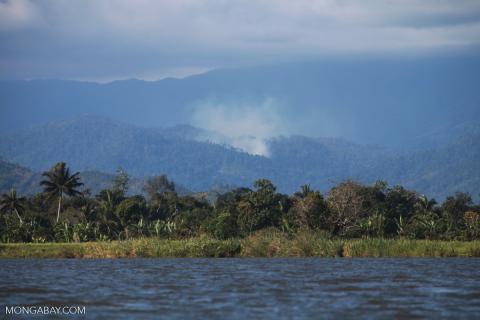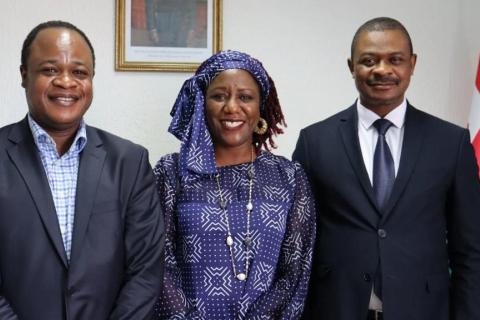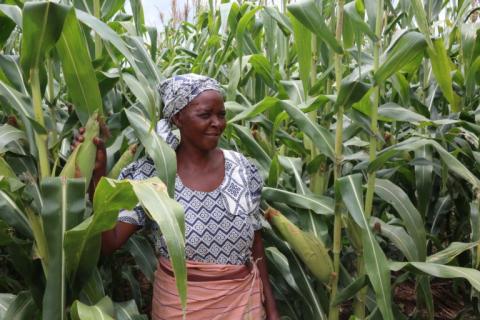
Topics and Regions
Landpages.co.ke is a medium of passing this message.
Details
Public Email
Location
Contributions
Displaying 711 - 720 of 740Land tenure continues to be major objective of development agenda
With a total of 65 participants (37% women) from 14 countries (Angola, Burundi, Cameroon, Cote d’Ivoire, Eswatini, Ethiopia, Ghana, Guinea Bissau, Kenya, Malawi, Niger, Pakistan, Sudan and Uganda) the 10th and last Capitalization Meeting of the EU Land Governance Transversal Project, was virtually delivered due to COVID-19.
Support to Lao People's Democratic Republic in developing or revising sub-legislations under 2019 Land Law
FAO is providing support to the Government of Lao People's Democratic Republic in the crafting of relevant sub-legislations under the 2019 Land Law. This process is led by the Department of Land of the Ministry of Natural Resources and Environment. FAO's support will ensure the mainstreaming of the principles and internationally recognized good practices of the VGGT, as well as building on the support provided and the network of partners at the time of drafting the land law.
Mainstreaming VGGT in revision of 2013 Land Law in Viet Nam for more responsible tenure governance
The Information Centre for Agriculture and Rural Development (AGROINFO) of the Institute of Policy and Strategy for Agriculture and Rural Development in Viet Nam examined in 2019-2021 how to mainstream and apply the VGGT principles and good practices in the process of amending the 2013 Land Law to achieve more responsible tenure governance.
Specific attention was paid to solutions and models of "land concentration" (defined as the process of increasing the agricultural land h
Passage of long-awaited tenure reform in Niger
An on-going aspiration in Niger since 1992, the Land Policy inspired by VGGT principles was finally adopted in Niger on 9 September 2021.
This operation which started in 2015 demonstrates that land tenure mechanisms need time, patience, technical support and a close follow-up at the Country level. The groundwork included a noteworthy participatory process led by a national multi-stakeholder committee established in 2017.
Behind the Brands Independent Evaluation on the Implementation of Land Rights Commitments
This independent evaluation by Emerald Network focuses on land rights, access and sustainable use, through an assessment of five companies: the Coca-Cola Company (TCCC), PepsiCo, Nestlé, Unilever and Associated British Foods’ (ABF) subsidiary Illovo Sugar Africa. As a result of the Behind the Brands campaign, these companies have publicly recognized the risk of people being dispossessed of their land to make way for agricultural commodities and have pledged to respect the rights of women, communities and smallholder farmers.
Even as the government bets big on carbon, REDD+ flounders in Madagascar
REDD+ is an idea that has launched a thousand projects. It’s essentially a way to monetize forests’ ability to store carbon and put that money in the hands of communities who can protect them.
Blue Ventures, a U.K.-based NGO, saw the U.N.’s reducing emissions from deforestation and forest degradation (REDD+) program as an opportunity to finance conservation in Madagascar. It was an attractive proposition, tackling two of the African nation’s most debilitating problems — forest destruction and poverty — at once.
Pan-African Conference on Community Land Rights identifies urgent collective land rights reforms and women's rights as critical for securing social peace in Africa
Delegates from 12 countries united in Lomé, Togo for the 3rd Conference by the African Land Institutions Network for Community Rights (ALIN); They highlighted successes and challenges from ongoing community land rights reforms in their countries, and charted a roadmap for the future; The conference, hosted by the Government of Togo, was initiated by the Rights and Resources Initiative (www.RightsandResources.org) and co-organized by International Land Coalition, Africa.
Can group farms outperform individual family farms? Empirical insights from India
Is there an alternative model to small family farming that could provide sustainable livelihoods to millions of resource-constrained and often non-viable smallholders in developing countries? Could group farming constitute such an alternative, wherein smallholders voluntarily pool land, labour and capital to create larger farms that they manage collectively?
How Many and Which Women Own Land in India? Inter-gender and Intra-gender Gaps
Measuring gender inequality in land ownership is essential for assessing progress in women’s economic empowerment, tracing the impact of progressive laws on actual practice, and monitoring SDG 5 on gender equality. To effectively assess inter-gender (male-female) gaps in land ownership, however, requires multiple measures. We also need to know which women are more likely to own land by tracing intra-gender differences. To date, no study on India has provided a full range of measures on inter-gender inequality in land ownership or focused on intra-gender variations.
Zimbabwe Farmers Embrace Conservation Agriculture To Beat Effects Of Climate Change
It is a windy day in Marange, Chanakira village. Small clouds scuddle the blue sky giving it a blurred look. About 110 kilometers southwest of Mutare, Norah Mwastuku (48) a subsistence farmer sits at the verandah and contemplates when the first rains will arrive.
She anxiously looks at her fields, decorated with mulched holes.
Mwastuku is one of the farmers who have embraced the Pfumvudza program — a concept where crops are planted on zero tillage in a bid to conserve water and inputs on a small piece of land.

